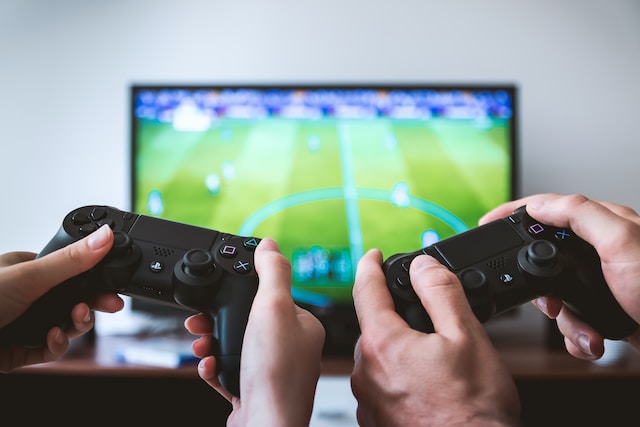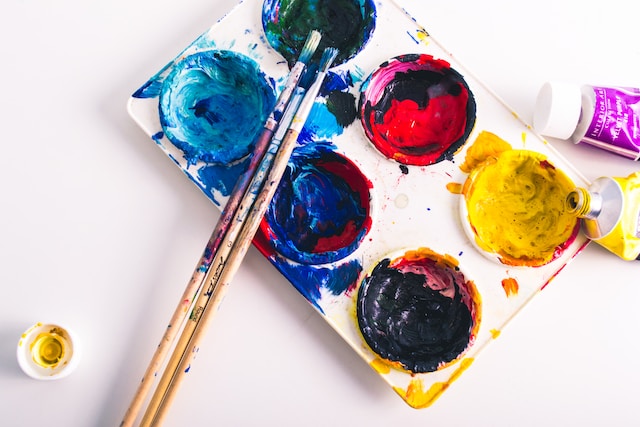Be it video games, fishing, sewing, or reading books, we all have a huge variety of different hobbies that we like to engage with. Some people enjoy them every evening after work, while others focus their hobby time on weekends so that they have the whole day to indulge in things they love.
Hobbies are a staple of life and they’re more than just pastimes to many of us. Some people see them as ways to achieve new goals in life, while others see them as opportunities for personal growth. Some people even consider them social activities to connect with old friends and family members, and others use hobbies as an opportunity to learn new skills.
As you can see, everyone engages in their hobbies for different reasons, but if there’s one common problem across everyone that enjoys their hobbies, it’s that they often feel guilty about spending money on it. So what causes this feeling and why should we try to overcome it?

Source: https://unsplash.com/photos/eCktzGjC-iU (CC0)
The guilt of spending money is real–and we need to overcome it
A lot of people feel guilty after spending money. This is a phenomenon that happens to everyone. It feels like you could be putting the money towards something more meaningful, such as your savings, and it can often feel bad knowing that you’ve just spent a huge chunk of money on something that is essentially just your pastime. Spending doesn’t always feel great or secure, but there are reasons for that.
For starters, if you’re feeling guilty about spending money, it’s probably due to a lack of planning! A lot of people tend to feel guilty after spending money on their hobbies because they know they either can’t afford such a purchase, or because they did it on impulse. There are a lot of people that don’t have financial goals, and this could lead to irresponsible spending which ultimately comes back to you.
So if you often feel guilty after spending money, it’s probably because you aren’t planning around your finances correctly. Make sure your financial responsibilities are taken care of before you indulge in your hobbies, and be realistic with how much you can spend.
What does it mean to invest big into your hobbies?
Almost every hobby has a high-end spending limit that can completely transform the way you approach it. For computer games, you could purchase a laptop or computer with all of the latest hardware that allows you to play the newest games with the highest graphics settings. This will cost several thousand, but it gives you an unparalleled experience that will take your hobby to a new level!
Another good example could be golfing. If you regularly go to a golf course, then it makes sense to invest in your own set of clubs. Pick out some that are really comfortable to use, and they’ll stay with you for life as long as you take good care of them when playing.
Investing in these kinds of purchases can really take your hobby enjoyment to a new level. A hobby is something we enjoy for the purposes of skill development, social engagement, or even just to challenge ourselves to something new. So in order to fully enjoy those hobbies, we have to start spending more in order to get more enjoyment out of it.
Think of it this way; imagine if you tried to improve your art skills by only using pencils. Sure, you could learn a lot about drawing and you might get really good at it. But having lots of different paints, colored pencils, and other arts and crafts supplies can really open up your options. You can create all different kinds of artwork if you spend a little, and it’ll help you enjoy the hobby a whole lot more.
But while we should always be open to spending big money on our favorite hobbies, we can’t just go around mindlessly buying things either.

Source: https://unsplash.com/photos/A2OL6S9zB7o (CC0)
How to make sure you’re getting the most out of your purchases
The last thing anyone wants is to buy something that ultimately doesn’t work or isn’t good for their needs. For instance, you might want to get a heavy duty sewing machine for use at home because you love making clothes, but is it something that suits your current skill level, and will it help you enjoy the hobby more? If the answer is yes, then you should go for it! But just remember–it’s easy to overestimate your ability and to buy things that you don’t really need yet.
This is a surprisingly common thing that people encounter when spending on their hobbies. They might see their friends or colleagues buying something expensive for a hobby, and they’ll feel like they’re missing out. They might invest in tools that they don’t fully understand how to use, or they’ll buy a premium piece of hardware because they think they might need it in the future.
Realistically, a lot of hobby-related purchases can be done on a budget. There are almost always diminishing returns when you look at high-end tools, hardware, and other items that are used to indulge in a hobby.
For example, buying art supplies can often lead to overspending. You might be interested in buying some new coloring pencils and paints, and it’s easy to look into the premium brands that are two or three times more expensive than competitors. However, unless you’re already really experienced and know how to use those art supplies and tools, you’re probably not going to make good use of all the expensive stuff. Instead, you should invest less money and focus on practicing and building up your skills.
The same can be said for hobbies like running. People tend to look at things like running shoes and how they can affect the overall hobby or experience. While it’s definitely important to pick a good pair of running shoes, you don’t need something fancy to start running! Instead of paying hundreds on a recommended pair of sneakers or shoes to run, you can start with something inexpensive and gradually work your way up if you need to.
The idea is to be frugal with your purchases. You shouldn’t be afraid to spend more and invest big, but you also shouldn’t be throwing money away at things you don’t need or don’t plan to use. Taking a gradual approach can be really helpful when deciding if you want to invest more in a hobby or not. So instead of diving straight into the deep end, gradually work your way down to it.
Conclusion
Loads of people find it hard to invest in their favorite hobbies because they’re treated like pastimes that we don’t really “need”. But we think that it’s crucial that you invest in those hobbies because it allows you to fully explore them, learn new skills, and enjoy them to the fullest. It could be buying a brand-new computer for video games, a whole bunch of art supplies, or even some appliances that open up new cooking options.
However, it’s also important not to overestimate your enjoyment of a hobby or your skills which could lead to you purchasing things that you don’t use much. Be smart with your purchases, and don’t be afraid to indulge in your hobbies a little bit as long as you have the financial security to do so! Take care of your main financial responsibilities first, then splash out on your hobbies to enjoy them to the fullest.
